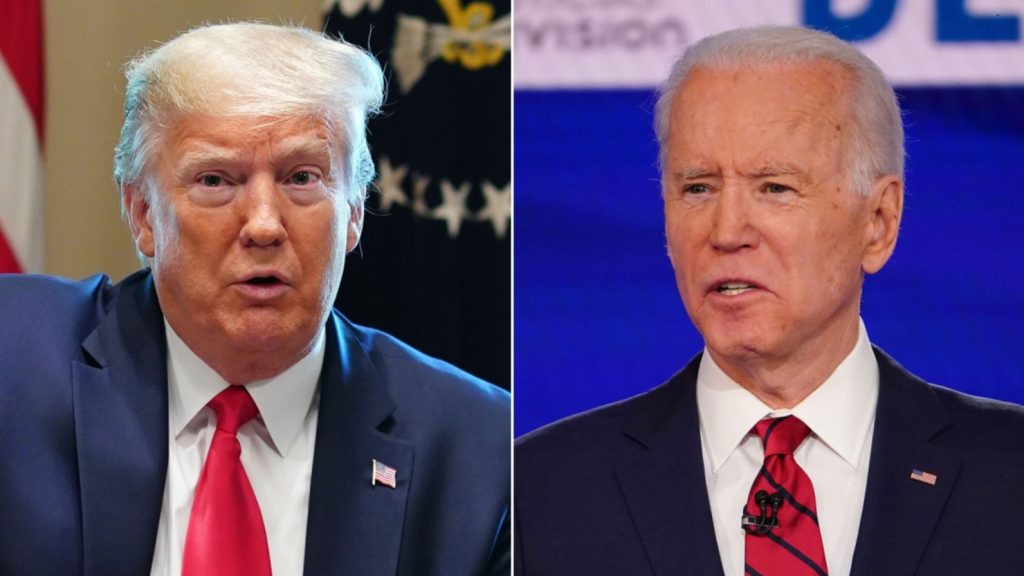
In the final stretch of the election campaign, President Joe Biden’s recent remarks have thrust him back into the spotlight, a position he seemed to have avoided just a week before the polls. During a virtual get-out-the-vote event for Vice President Kamala Harris, Biden attempted to defend Puerto Ricans against derogatory comments made at a Donald Trump rally, inadvertently causing a political uproar that shifted attention away from Harris’s key messages.
The controversy ignited when Biden addressed a joke made by a comedian at Trump’s Madison Square Garden event, who had referred to Puerto Rico as a “floating island of garbage.” In an attempt to counter this insult, Biden stated, “And just the other day, a speaker at his rally called Puerto Rico ‘a floating island of garbage.’ Well, let me tell you something… the only garbage I see floating out there is his supporters.” This comment sparked immediate backlash, prompting the White House to clarify Biden’s intention.
Press Secretary Andrew Bates quickly stepped in to mitigate the fallout, explaining that Biden was referencing the “hateful rhetoric” at the rally rather than insulting Trump’s supporters directly. To further clarify, Biden took to social media, asserting, “The only garbage I see floating out there is his supporters’—his demonization of Latinos is unconscionable.”
However, the damage seemed to have been done. Biden’s comments drew stark comparisons to Hillary Clinton’s infamous “basket of deplorables” remark in 2016, which became a rallying cry for Trump supporters and galvanized conservative media against her. Critics accused Biden of echoing this divisive sentiment, which could alienate potential swing voters, especially among the Latino community, a critical demographic in the upcoming election.
The situation intensified when Harris had to address the controversy during her own campaign stop. She emphasized, “I strongly disagree with any criticism of people based on who they vote for.” Harris asserted her commitment to representing all Americans, including those who may not support her. Yet, the question remained: would her defense adequately distance the campaign from Biden’s comments?
Trump wasted no time seizing the opportunity to turn the narrative in his favor. During a rally in Pennsylvania, he referred to Biden’s words as “terrible,” likening them to Clinton’s “deplorable” label. Trump’s campaign quickly capitalized on the situation, asserting that Biden’s remarks displayed a deep-seated disdain for a broad swath of the American electorate, including Latinos and working-class voters.
The Trump campaign’s national press secretary claimed, “Joe Biden and Kamala Harris don’t just hate President Trump; they despise the tens of millions of Americans who support him.” This narrative could prove detrimental to the Biden-Harris campaign, particularly as they attempt to attract disillusioned Republicans.
As the election looms, the implications of Biden’s comments could extend beyond just this gaffe. The recent incident may deepen the divide between the Democratic establishment and working-class voters, undermining Harris’s efforts to present herself as a unifying figure. At a rally, she had emphasized her commitment to finding common ground, stating, “Unlike Donald Trump, I don’t believe people who disagree with me are the enemy.” But now, she risks being caught in the crossfire of a narrative that frames Democrats as elitist and dismissive.
The timing of Biden’s remarks is critical; they came as his team sought to highlight Trump’s controversial comments made at the rally, shifting focus away from Harris’s contrasting message. Instead, Biden’s “garbage” comment has created a new political headache for the administration.
Adding to the complexity, the fallout from Biden’s remarks could reawaken discussions about his role in the campaign. Despite having made several appearances alongside Harris, Biden has been kept on the sidelines in recent weeks, particularly following a series of gaffes that have raised concerns about his age and cognitive acuity. Recent missteps included comments about locking Trump up politically and referencing former Congresswoman Gabby Giffords in the past tense.
With the election approaching, Biden’s aides acknowledge the critical nature of every word spoken. They have adopted a “Do No Harm” strategy, aware that even minor slip-ups could have significant repercussions in such a closely contested race. However, the current controversy demonstrates how quickly a seemingly innocuous comment can spiral into a major campaign issue.
As both parties head into the final week before the election, Biden’s remarks may serve as a reminder of the precariousness of political messaging in an increasingly polarized environment. The risk of miscommunication and the perception of contempt for voters can linger long after the words are spoken, impacting voter sentiment in ways that are difficult to measure but potentially decisive in the outcome.








